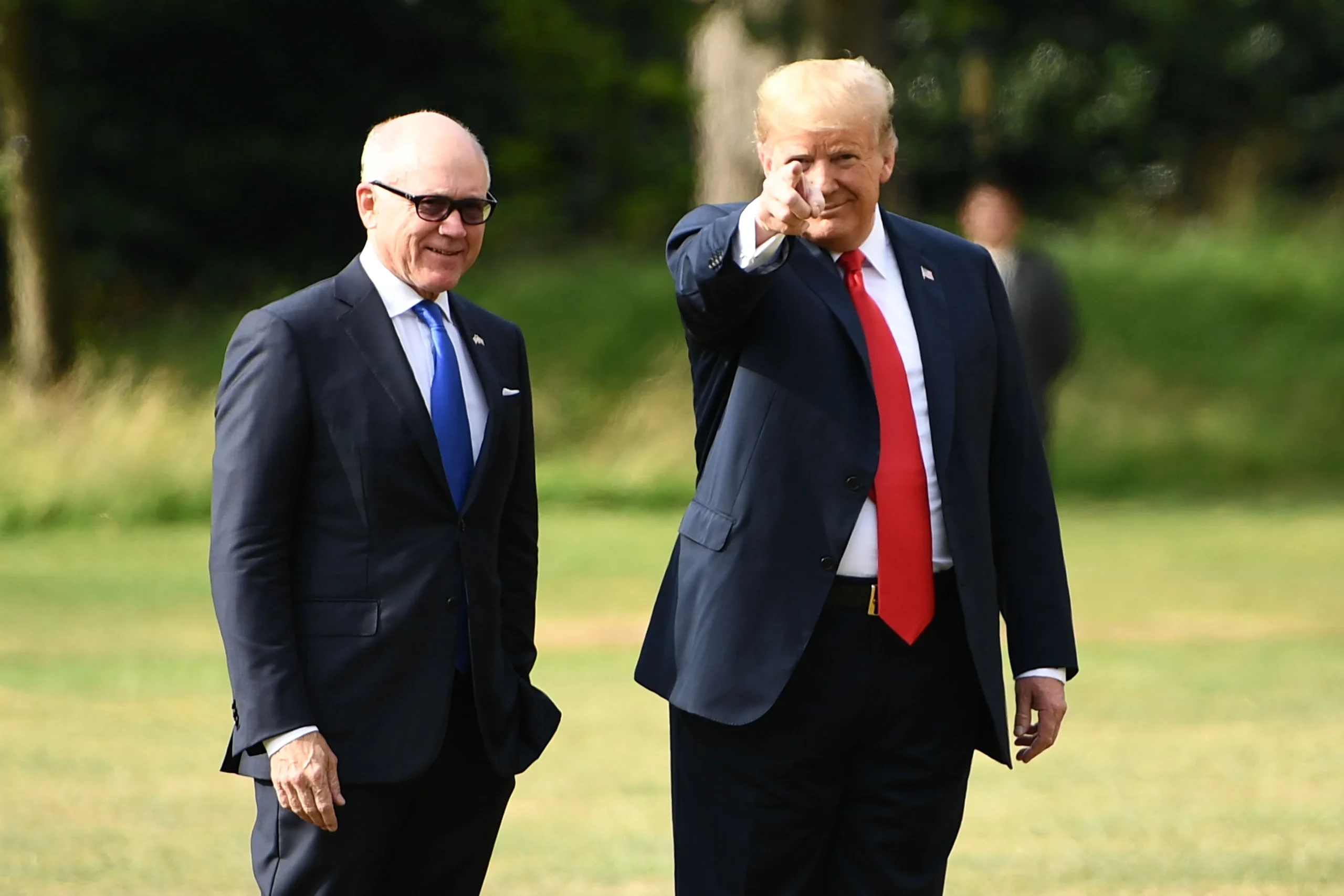In a development that could reshape the New York Jets’ organizational landscape, team owner Woody Johnson may be poised for another diplomatic appointment following Donald Trump’s election to the presidency in 2024.
Industry insiders suggest Johnson could reprise his role as Ambassador to the United Kingdom, a position he held during Trump’s first administration, though official confirmation remains pending from both parties.
The potential transition comes at a particularly delicate moment for the Jets franchise, which finds itself navigating multiple critical crossroads. With a vacant head coaching position, general manager Joe Douglas entering the final months of his contract, and four-time MVP Aaron Rodgers contemplating his football future at age 40, the timing of Johnson’s possible departure adds another layer of complexity to an already challenging situation.
Should history repeat itself, the timeline for Johnson’s transition would likely mirror his 2017 appointment. During that process, the announcement came in late January, followed by Senate confirmation in August. This schedule would theoretically allow Johnson to oversee the current head coaching search and facilitate a smooth handover to his brother, Christopher Johnson, who previously managed the team’s day-to-day operations during Woody’s diplomatic service.
Christopher Johnson’s prior experience at the helm could prove invaluable in maintaining organizational stability. Unlike the previous transition in 2017, when he was new to operational leadership, Christopher now brings valuable institutional knowledge and established relationships within the Jets’ framework. His continued presence in the organization since his earlier tenure suggests the potential for a more seamless transition this time around.
Advertisement
Latest Press Conference
We’re on Social Media



However, recent history highlights the challenges inherent in leadership changes at the ownership level. When Woody Johnson returned from his diplomatic post after Trump’s first term, he inherited head coach Robert Saleh – a hire made during his absence. This arrangement raised questions within NFL circles about the dynamics of an owner-coach relationship where the owner didn’t participate in the hiring process. Those concerns seemed validated when Johnson dismissed Saleh early in the 2023 season after a 2-3 start, elevating Jeff Ulbrich to interim head coach.
The timing of this potential transition also coincides with crucial personnel decisions. General Manager Joe Douglas’s contract situation looms large, with his current deal set to expire this summer. The possibility of Woody Johnson’s departure adds another variable to an already complex equation: How might the prospect of new operational leadership influence the organization’s approach to the GM position?
Perhaps most significantly, the Jets must navigate the Aaron Rodgers situation. The future Hall of Fame quarterback’s presence on the roster at age 40 represents both tremendous opportunity and uncertainty. His year-to-year status demands careful management and clear organizational direction – elements that could be impacted by changes in leadership.
League officials, speaking on background due to the sensitive nature of the situation, believe Johnson would likely accept another ambassadorship if offered. Sources close to Johnson indicate his previous diplomatic experience was deeply satisfying, making a return to that role an attractive proposition despite the challenges it would create for his NFL franchise.
The NFL has maintained official silence on the matter, a stance that aligns with their typical approach to potential ownership changes until they become formal. This measured response reflects the delicate balance between respecting an owner’s personal decisions and maintaining league stability.
For a franchise perpetually seeking to establish long-term stability, the prospect of another ownership transition presents both challenges and opportunities. While Christopher Johnson’s experience could provide continuity, the broader implications for the Jets’ future direction – from coaching staff to front office to on-field personnel – remain significant considerations as the organization navigates this period of potential change.
As the situation continues to develop, all eyes remain on Woody Johnson’s next move and its potential ripple effects throughout the Jets organization. The coming months promise to be crucial in determining the franchise’s leadership structure and, by extension, its competitive future in the NFL landscape.
